
Christopher Crockett is an Associate News Editor. He was formerly the astronomy writer from 2014 to 2017, and he has a Ph.D. in astronomy from the University of California, Los Angeles.

Trustworthy journalism comes at a price.
Scientists and journalists share a core belief in questioning, observing and verifying to reach the truth. Science News reports on crucial research and discovery across science disciplines. We need your financial support to make it happen – every contribution makes a difference.
All Stories by Christopher Crockett
-
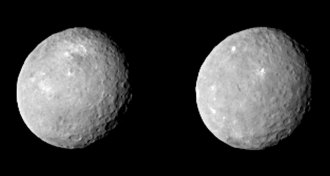 Planetary Science
Planetary ScienceDwarf planet Ceres comes into view
New images from the Dawn spacecraft reveal a landscape of craters and mysterious bright patches on the dwarf planet Ceres.
-
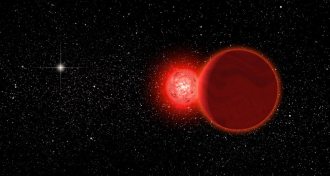 Astronomy
AstronomyPair of stars buzzed the solar system 70,000 years ago
Astronomers discover a binary system that made the closest known flyby of the sun.
-
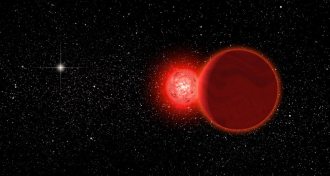 Astronomy
AstronomyClosest star approach to the sun
Astronomers discover a binary system that made the closest known flyby of the sun.
-
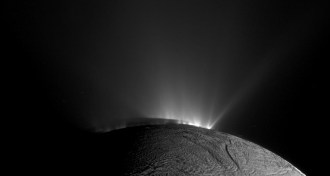 Planetary Science
Planetary ScienceEnceladus ocean may resemble Antarctic lake
The pH of a subsurface sea on a moon of Saturn resembles an ice-covered lake in Antarctica where microbial mats thrive.
-
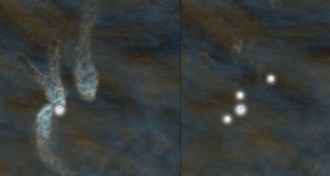 Astronomy
AstronomyStellar nursery gives birth to quadruplets
Four young stars, still in their cocoons, show that binary and other multiple star systems form together.
-
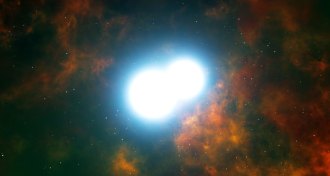 Astronomy
AstronomyWhite dwarf pair will trigger a supernova — in 700 million years
Astronomers found two white dwarfs with enough mass to explode as a supernova.
-
 Astronomy
AstronomyFirst stars born later than thought
New results from the Planck mission indicate that the first stars began to shine 550 million years after the Big Bang.
-
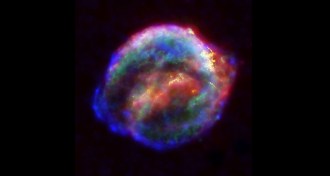 Astronomy
AstronomyAsteroids or planets might trigger a supernova
Rocky debris falling onto a white dwarf might trigger some supernovas.
-
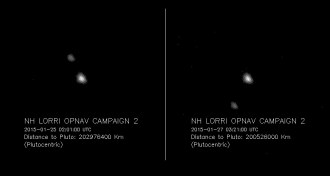 Planetary Science
Planetary ScienceNew Horizons snaps new photos of Pluto
Pluto and its moon Charon appear as two smudges in the first pictures taken since New Horizons came out of hibernation.
-
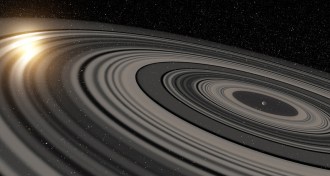 Astronomy
AstronomyGiant rings encircle young exoplanet
Stretching 90 million kilometers from their center, 37 stripes of dust around exoplanet were probably crafted by moons.
-
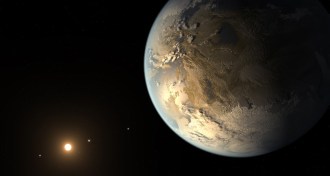 Astronomy
AstronomyNeptune-like worlds could become habitable
Mini-Neptunes can drift toward their stars and lose their atmospheres, leaving behind ice-rich rocky cores that can become watery worlds.
-
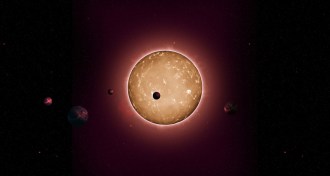 Astronomy
AstronomyOldest solar system unearthed by Kepler
Five rocky planets orbit the 11.2-billion-year-old star Kepler 444, suggesting that Earth-sized worlds formed in the early universe.